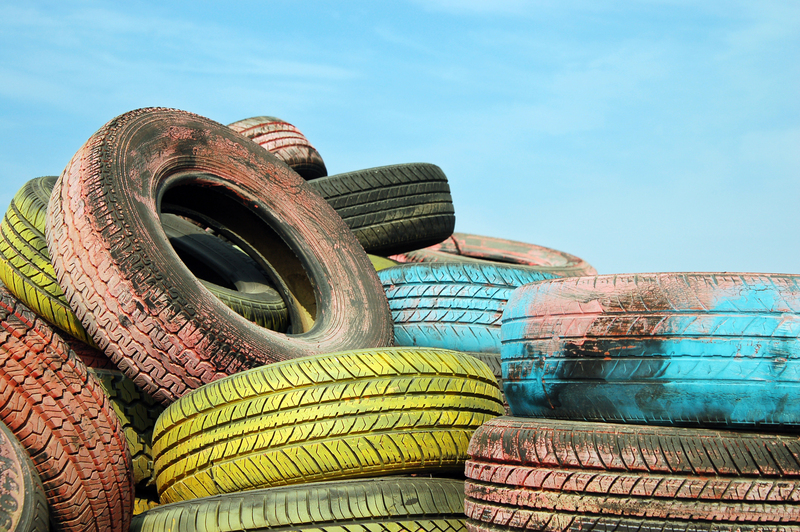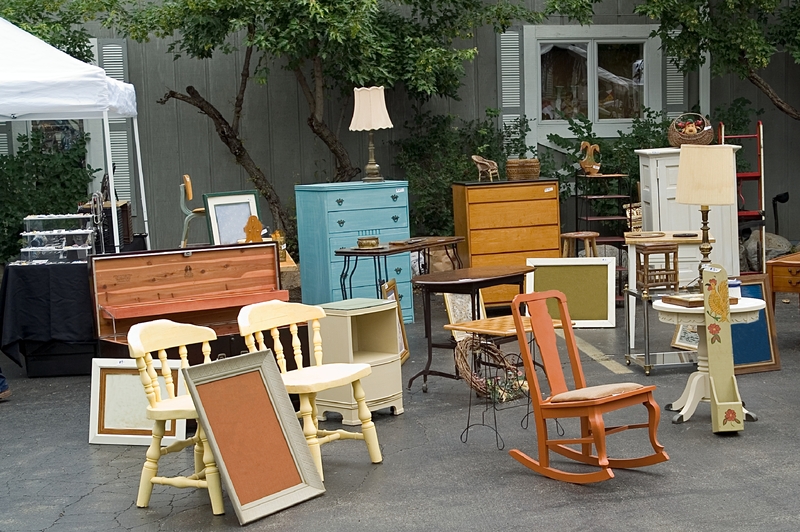Smart Ways to Get Rid of Old Chargers Responsibly
In the digital age, most of us have a tangled drawer dedicated solely to old electronic accessories: USB cables, power adapters, and outdated chargers. With every upgrade to the latest device--be it a smartphone, tablet, or laptop--comes a new set of charging equipment, leaving us with a surplus of old chargers. Many people wonder what to do with these obsolete chargers, as simply tossing them in the bin is both environmentally unfriendly and sometimes hazardous. Let's explore smart and responsible ways to dispose of old chargers without causing harm to the planet.

Why Proper Disposal of Old Chargers Matters
It's crucial to understand the impact of incorrect disposal of electronic waste, or e-waste, including old chargers. These items often contain materials such as plastics, metals, and sometimes toxic chemicals, which can leach into the environment if not handled properly. Furthermore, there are often recoverable and recyclable materials inside chargers and cables.
- Environmental Protection: Chargers contain metals like copper, which can be recycled and reused rather than mined anew.
- Reduces landfill waste: Chargers in landfills take centuries to decompose and can leak dangerous substances over time.
- Legal compliance: Some regions have banned e-waste in household bins, making proper disposal a legal necessity.
By choosing smart, eco-friendly disposal methods for your old chargers, you are helping to preserve the environment and make use of valuable resources.
Assessing Your Old Chargers Before Disposing
Before you throw away your outdated charging cables and power adapters, consider the following:
- Check for Functionality: Some chargers, although 'old,' could work perfectly and be useful elsewhere.
- Match with Devices: Some older electronics or universal devices still require previous generation chargers.
- Identify Brand-Specific Needs: Some brands have proprietary charging systems that might be valued by collectors or other users.
Smart and Responsible Ways to Get Rid of Old Chargers
1. Drop Off at E-Waste Recycling Centers
The most responsible and effective way to get rid of old chargers is to take them to a certified e-waste recycling center. These facilities are equipped to dismantle and recycle electronic components safely.
- Find Your Local E-Waste Collection Site: Many cities and towns host collection days or have permanent e-waste drop-off locations.
- Retailer Take-Back Programs: Electronics stores like Best Buy or Staples often accept chargers and cables for recycling--even ones not purchased from them.
Always check the recycler's certification (such as R2 or e-Stewards) to ensure environmentally sound recycling processes.
2. Donate to Schools, Charities, or Non-Profits
Even if a charger is too old for your needs, schools or community centers may welcome them--especially if they still have devices that match.
- Charity Drives: Some charities refurbish electronics and appreciate donated chargers.
- Classroom Use: Schools may use old chargers for older tablets or e-readers still in service.
Reach out to local organizations to see if your old charging equipment could be reused--it's a great way to keep them out of the landfill!
3. Sell or Give Away Online
There's a market for almost everything online! If your charger is still working, consider posting it on:
- Local classified ad sites (e.g., Craigslist, Facebook Marketplace): Someone in your area may need that exact model.
- Online forums or buy-nothing groups: Community sites like Freecycle or neighborhood forums.
- Specialty online marketplaces: Websites dedicated to electronics, like Decluttr or eBay.
This strategy gives your old charger a second life, making resource use more sustainable.
4. Return to the Manufacturer
Many major electronics manufacturers offer take-back and mail-in recycling programs, collecting old chargers and peripherals for responsible recycling.
- Apple: Offers an official recycling program and accepts accessories at their stores.
- Samsung and Dell: Similar programs let you recycle or return old electronics--including chargers--by mail or via drop-off.
Visit the official website of your charger's brand to see if they have a program and to learn the process for sending them your old adapters or cables.
5. Repurpose or Upcycle Old Chargers Creatively
If recycling isn't immediately available, consider repurposing your old chargers and cables. With a bit of creativity, you can breathe new life into them:
- Cable organizers: Use unwanted USB cords to tie up other cables or as cord organizers for your workspace.
- DIY Electronics Projects: Hobbyists can salvage wires and connectors for use in small projects or repairs.
- Art Installations: Some artists love using e-waste for sculptures, mosaics, or jewelry.
Always exercise caution and ensure no electrical current is present before repurposing or dismantling chargers.
What Not to Do With Old Chargers
While it's tempting to declutter quickly, there are several important "don'ts" when getting rid of old phone chargers and power adapters:
- Don't Toss Them in the Regular Trash: Chargers belong to e-waste, not household garbage.
- Don't Burn or Incinerate: Toxic fumes can be released from plastics and metals.
- Don't Leave Them Abandoned: Improperly discarded chargers can endanger wildlife and contaminate soil and water.
Tips for Minimizing Charger Waste in the Future
A good strategy is to reduce your accumulation of chargers and cables going forward. Here are some smart approaches:
- Opt for Universal Chargers: Where possible, choose devices that use standard charging protocols like USB-C.
- Buy Quality Over Quantity: Investing in durable charging cables means fewer will be replaced over time.
- Share and Reuse: Coordinate with friends and family to share spare chargers, rather than purchasing new ones for every device.
- Take Care: Gentle handling and proper storage can greatly extend a charger's life.
Frequently Asked Questions on Disposing of Old Chargers Responsibly
Q1: Are chargers considered e-waste?
Yes, chargers are a type of electronic waste (e-waste) because they contain electronic components and, sometimes, hazardous materials that should be disposed of carefully.
Q2: Can my local recycling center accept old chargers?
Check your local recycling program's guidelines. Some municipal centers accept e-waste, but others may require you to take them to specialized e-waste collection sites or events.
Q3: Is it possible to repair broken chargers?
In some cases, especially with high-value chargers, repairs are possible and can extend their lifespan. However, DIY repairs should be approached with caution and only by those with appropriate knowledge, as improper repairs can be unsafe.

The Future of Charger Recycling: Industry Trends
As technology advances and charging standards evolve, manufacturers and legislators are working to reduce e-waste from chargers and cables. In the European Union, new regulations are moving towards universal charging solutions, ensuring that future devices (including smartphones and tablets) adopt USB-C as a common standard. Such developments aim to reduce the build-up of redundant chargers, making smart disposal easier and less frequent in the long run.
- Universal Charging Solutions: Common standards like USB-C help minimize the number of chargers needed.
- Modular Devices: Some companies are exploring modular electronics that allow easy replacement of only what's broken or outdated.
- Producer Responsibility: More companies may be required to offer recycling programs for their products and accessories.
Conclusion: Be Smart and Sustainable With Your Charger Disposal
The question of how to dispose of old chargers responsibly is more important than ever as our lives become increasingly digital. Smart ways to get rid of old chargers include recycling at certified e-waste centers, donating to those in need, selling or giving away online, using manufacturer take-back programs, and repurposing in creative projects. By following these practices, you help conserve resources, cut down on pollution, and protect the earth for future generations.
Take an active role and choose smart, responsible ways to get rid of your surplus chargers. It's not just good for your home--it's good for the planet.